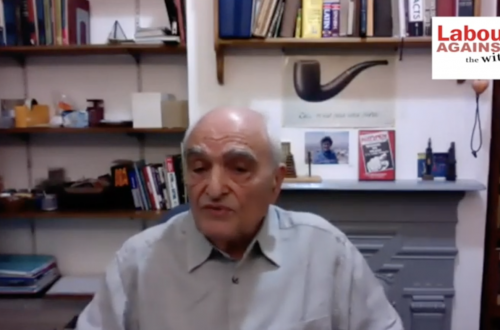This is a cross post by Ghaffar Hussain from The Telegraph
The Arab Spring was seen by many in the West as an opportunity for the people of the MENA region to overthrow entrenched authoritarian political orders and replace them with democratic, transparent and accountable governments that respect basic human rights.
In reality, many of these well intentioned popular revolutions, especially in places such as Libya, Egypt, Syria and Yemen, have begun to turn sour. Not only have these revolutions undermined security thus allowing the forces of anarchy and extremism to be unleashed, they have also re-ignited existing sectarian conflicts.
Since popular protests against Abdullah Saleh in Yemen began in January 2011, Iranian-backed Shia Houthi rebels in the north of the country have begun to make strategic and territorial gains. This has resulted in Houhti rebels being increasingly targeted in Yemeni army operations as well as being attacked by al-Qaeda and other Salafist groups in the country.
Last Tuesday, the Telegraph revealed the tragic story of two men from west London, Adil Malik and Hisham, who had travelled to the Yemen, ostensibly to study Islam, but ended up joining the civil war in the country and being killed by Houhti rebels near Dammaj.
Both individuals were regulars at Cranford Mosque, which is known for its adherence to Salafism (an ultra-austere, rigid and decontextualized form of Islam) and it’s encouraging of people to study in Demaaj in Yemen. Dammaj is known as a centre of learning for Salafi Islam, and the seminary there that attracts international students is run by a cleric who goes by the name of Sheikh Yahya al-Hajooree.
Sheikh Yahya is a notorious hate preacher, who has visited Britain in order to give classes and even authored a short book about his experiences in this country. In this book, he describes the people of Britain as ‘the worst of creatures’ who are worse than animals in their behaviour. He accuses British women and men of leading promiscuous and care free lives with no concern for morality. He mocks the beliefs and practises of non-Salafi Muslims as well as Christians and Hindus. He even complains about wife beating being made illegal. This masterpiece of hate and bigotry can be read in full here.
Sheikh Yahya has recently declared war on Houthi Shia fighters in and around Demaaj and has been encouraging Salafis everywhere to fight against them. Chatter on the internet suggests that Salafis around the world have been galvanised by his call to arms and, potentially, many more Brits could end up being killed in action in northern Yemen.
The proliferation of Salafist institutions in the UK during the past decade, usually bank-rolled by Saudi money, is a very negative and yet much ignored development. Many of these institutions are non-terrorist, in that they don’t believe in planting bombs to target unarmed civilians in the West, but their message is often one of hate and violence. Indeed, notorious terrorists such as Richard Reid (the shoe bomber) and Asif Hanif (who blew himself up in Tel Aviv) were regulars at Salafist run mosques.
Salafis, with a few notable exceptions, are well known for being intolerant religious absolutists that promote sectarianism and have a deep dislike of Sufi and Shia Muslims. This dislike often results in violent attacks in places such as Pakistan and Saudi Arabia. So whilst British anti-terrorist efforts are often focused on extreme Islamist groups, Salafis not only slip through the net but are, in some instances, viewed as partners in the fight against extremism and terrorism.
Salafis do not pose the same threat as groups linked to al-Qaeda, but their preachings are poisonous and have a detrimental impact on community relations. If the proliferation of Salafism in this country continues to go unchecked, we can expect to see many more vulnerable young British Muslims, taking advantages of opportunities offered by the Arab Spring, and being drawn to war zones in order to fight in sectarian conflicts that they should have nothing to do with.


